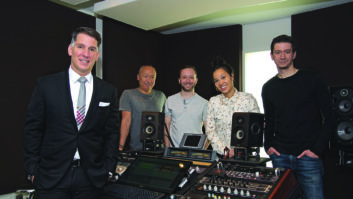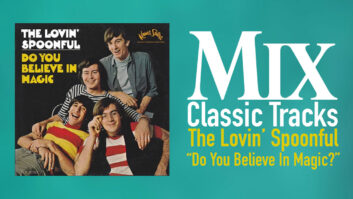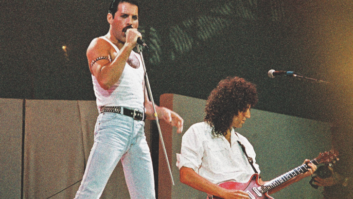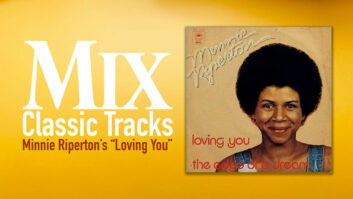A few weeks ago, the news came from Apple which most of us knew we’d hear sooner rather than later: Steve Jobs resigned his position at the company he started.
Over the last few years, many of us watched with concern and sadness as Jobs’ physical condition deteriorated. We knew of his tremendous drive and passion for his work and that if he ever stepped down, it would only be because he was very ill and probably working for a long time with conditions very few could handle.
It’s no stretch to say that Jobs’ vision and creativity has impacted all of us to one degree or another. It’s likely that a majority of you are reading this on some device created under his watchful eye. Even those using Windows or an Android phone are using technologies clearly traceable to Apple’s innovation. And beyond that, who doesn’t have at least an iPod or iTouch? Jobs’ creations are all around us and have clearly set a standard for how things should work.
The venerable Mac SE
I remember when I bought my first Mac. It’s still in my studio, now sitting silent on top of my rack of gear. It’s a Mac SE, with a 20 MB hard drive and 4 MB of RAM. I had Speed Doubler installed, so it runs at a screaming 8Mhz. It’s a 1984 product which cost $2,000. (Funny thing about that—that price point is still the cost of a decent desktop over all these years) It still works and has had zero issues over the years. And like all Macs, Y2K came and went without any need for patches to make it cross the millennium boundary.
So what’s to be said for the end of the era of the Silicon Valley Pirates? There are probably some still in trenches who began back with Jobs and Gates, but these days, Gates is a figurehead, and has been for a long time. Jobs, however, was the last active leader of that group. His retirement marks the end of the era of the creation of personal computing. Jobs and others like him were Malcolm Gladwell’s “Outliers.” They had the right skills, were born at the right time, and put in the 10,000 hours required for world-class proficiency. His retirement closes the book on one of the most significant eras of human invention. The world has forever changed due to their ingenuity and drive.
By now, there are no doubt numerous articles and blogs written about Steve Jobs by folks much more connected and reputable than myself. I’m just a knob jockey who’s never purchased anything but Apple products. So what’s to be said that hasn’t already been written? I may echo other’s writings, but here’s what comes to mind:
When I think of Steve Jobs, the first thing that comes to mind is his passion. You could see it every year at MacWorld Expo when he spoke of the innovations Apple was going to release. No other CEO has ever commanded such anticipation and spoken to a live and web audience of such number every year. More than once, I’d be in the studio and someone would ask, “Hey, did you see the Apple webcast?” It was that significant. But as good as the new products were, we didn’t watch just for information. We watched to be inspired by Jobs’ passion.
Yet not only did I feel passion when Jobs spoke, I felt it when I used Apple’s products. And that’s something truly remarkable. To be able to create a product which causes an emotional response by the user is nothing short of amazing. I recall the first time someone showed me an iPod. There was no need to demonstrate how it worked; it was as plain as day. After a few seconds of fiddling with it, I was breathless with the realization of what I had in my hand. It was complex, sophisticated, yet agonizingly simple to operate. The iPod was a paradigm shift in handheld digital products. The Mac OS was the same. There was a brilliant clarity about how it worked. There was a kind of sex appeal about it. Sure Windows OS worked…at least sometimes. (I’m still baffled at how Vista left Redmond for release.) But somehow Apple continued to make product after product that worked with great efficiency and beauty.
The other thing which occurs to me with Steve Jobs is the personal power of a human being. Of course, Jobs had his flaws. His rants and tyrannical behavior are legendary. Perhaps such things were necessary for his work, perhaps not. Yet one cannot deny the very large mark he left on the world.
In 2005, Jobs gave the commencement speech at Stanford University. At just under fifteen minutes long, it’s perhaps one of the most profound speeches you’ll ever hear.
In it, Jobs tells three stories from his life. Three simple stories. “Connecting the dots,” where he discusses how things in life which might seem irrelevant today can have great meaning later; “Love and Loss,” about his creation of Apple and his getting fired, then rehired; and “Death,” his experience with cancer.
I could hardly do justice to Jobs’ speech with some expository ramblings. Listen to it yourself and hear his brilliance. But I will include a few quotes from the speech in the hope that you’ll take the time to hear it.
CONNECTING THE DOTS
“You can’t connect the dots looking forward. You can only connect them looking backwards. So you have to trust that the dots will somehow connect in your future…. You have to trust in something…because believing that that the dots will connect down the road will give you the confidence to follow your heart…even when it leads you off the well-worn path. And that will make all the difference.”
LOVE AND LOSS
“I didn’t see it then, but it turned out that getting fired from Apple was the best thing that could have ever happened to me. The heaviness of being successful was replaced with the lightness of being a beginner again, less sure about everything. It freed me to enter into one of the most creative periods of my life.”
“You’ve got to find what you love….Your work is going to fill a large part of you life. And the only way to be truly satisfied…is to do what you believe is great work. And the only way to do great work is to love what you do.”
DEATH
When Jobs was 17, he read a quote which said, “If you live each day as if it was your last, one day you’ll most certainly be right.” Jobs said, “And for the next 33 years I’ve looked in the mirror and asked, ‘If today were the last day of my life, would I want to do what I’m about to do today?’ And whenever the answer has been “No” for too many days in a row, I know I need to change something.”
Clearly, Jobs is in a different place than he was on that California day in 2005. At that time, he thought his bout with his illness was over. And, of course, his words carry even more weight today.
I’d be a fool to try to summarize Jobs’ observations. They speak well enough on their own. My desire is to take them to heart and apply them to my own life. It’s probably no stretch to say that most all of you reading this are blessed to be doing what you love. But, as the years and decades roll on, we still need to be sure we’re still doing what we love. Times change. We change. And with these changes, most all of us are needing to adapt. So while we’re still involved in a career we love, we may need to refine again what we’re doing.
Jobs finished his speech with a quote from the last issue of The Whole Earth Catalog. For those of you too young to know what that was, it was an indie magazine published from the late 60’s to the early 70’s. Jobs described it as, “One of the bibles of my generation.”
They published several issues and when they felt it had run its course, they published their swan song. On the back cover was a photograph of a early morning country road. The quote over the photo was, “Stay hungry. Stay foolish.” Jobs closed his speech the the assembled class by saying, “And I’ve always wished that for myself. And that is my wish for you: Stay hungry. Stay foolish.”
David Schober is an Engineer/Producer with 20-plus years working with the best in the biz, here to help with your recording and production needs. Find him at his website and on Twitter, or leave a comment below.






![A stroll through Abbey Road. Watch out for that bus! Photo: Phil Castellano. [Editor's Note: Steve is last in line.]](https://www.mixonline.com/wp-content/uploads/2025/06/2025-06-26-Blog_Fig1-MAIN-353x199.jpg)